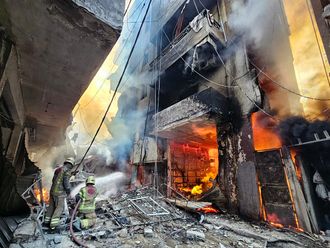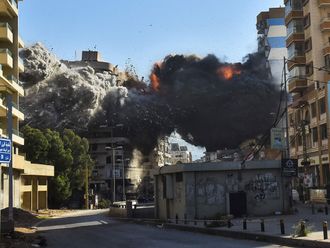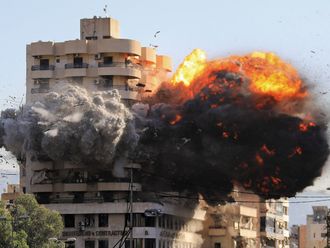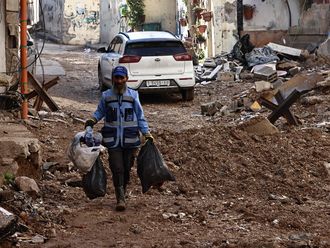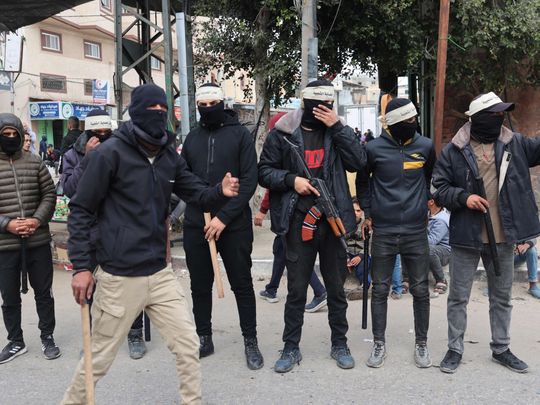
RAFAH: Whether directing traffic or controlling prices, a group of vigilantes is determined to uphold order as five months of war have shattered any semblance of normalcy in Gaza’s southernmost city of Rafah.
Their faces covered with black balaclavas, the so-called “Popular Committees of Protection” patrol Rafah where vast numbers of displaced people have sought refuge.
“We are hundreds of individuals and volunteers maintaining security and protecting citizens from high prices, organising public markets and transport,” said 28-year-old Abu Mahmud.
About 1.5 million of the territory’s 2.4 million residents have crammed into Rafah and, even when supplies are available, severe restrictions on deliveries from neighbouring Egypt have led to skyrocketing prices.
Also read
- After 10 years of trying, a Palestinian woman in Gaza had twins. An Israeli strike killed them both
- Flood Gaza with aid: Starving children should be an alarm like no other, UN says
- ‘I’m so afraid of giving birth’: The plight of 52,000 pregnant women in war-torn Gaza
- Hunger crisis in Gaza: Here’s is what you need to know
The economy ministry in Hamas-run Gaza has sought to tackle the problem by setting a daily price list of staples, such as vegetables and crackers, which these committees are seeking to enforce.
“We follow the traders who raise prices,” said Abu Islam, 29, a member of a seven-strong squad patrolling a market in the central Rafah refugee camp.
One of the shoppers complained to the group about a stall owner selling a kilo of sugar for 80 shekels ($22), prompting the vigilantes to tell the vendor to price it at 65 shekels in line with the official list.
In late February, dozens of Gazans held a rare protest in Rafah to denounce soaring food prices.
Protesters burned tyres, while some expressed frustration at the territory’s Hamas authorities.
‘Work for the people’
A kilo of sugar cost just two shekels before the war erupted on October 7, with the attack by Hamas militants on southern Israel.
The assault resulted in about 1,160 deaths, most of them civilians, according to an AFP tally based on official Israeli figures.
Israel’s retaliatory offensive has killed at least 30,717 people, mostly women and children, according to Gaza’s health ministry.
Dozens more have died of malnutrition in recent days, the ministry said, as hunger grips the territory.
“We work for the people and hope to be as trustworthy as possible,” said Abu Islam.
“Whoever has a rifle uses it,” he added, though all but one of his squad were armed with only sticks.
The vigilante groups have sprung up in recent weeks, following a February 10 strike on a police car which killed multiple officers.
Police patrols have become few and far between since the strike, an AFP correspondent in Rafah said.
The volunteer group in the Rafah camp also directs traffic, including an ambulance, a truck loaded with supplies and a United Nations car.
“We thank the Popular Committees for their efforts,” said Abu Ahmed, a displaced Gazan.
The 61-year-old commended in particular their attempts to “maintain reasonable prices”.


